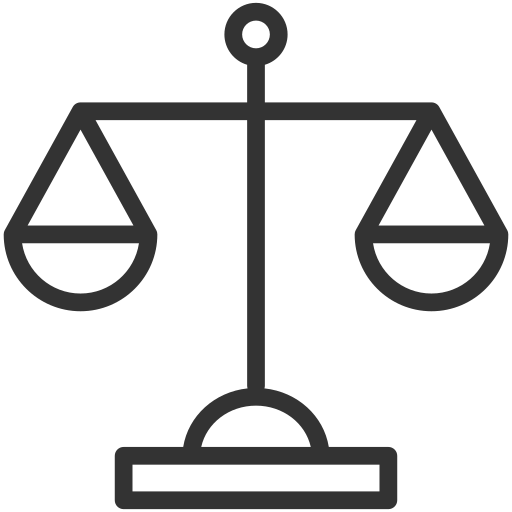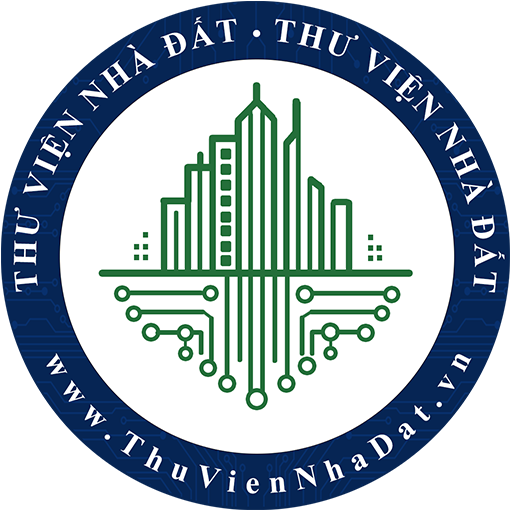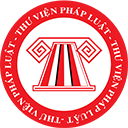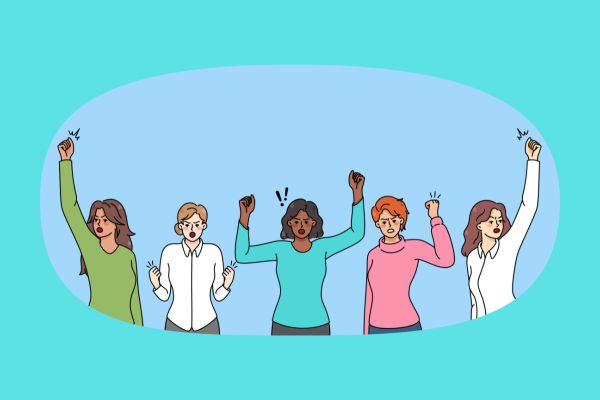Theo Hiến pháp 2013 thì quyền con người được quy định như thế nào? Các quyền con người bị hạn chế khi nào?
Nội dung chính
Các quyền con người theo Hiến pháp 2013?
Quyền con người là những quyền tự nhiên, vốn có và khách quan của con người được ghi nhận và bảo vệ trong pháp luật quốc gia và các thỏa thuận pháp lý quốc tế.
Giáo trình Luật Hiến pháp Việt Nam của Khoa Luật Đại học Quốc gia Hà Nội năm 2006 có nêu về các quyền con người như sau:
"Trong khoa học pháp lý, các quyền con người được hiểu đó là những quyền mà pháp luật cần phải thừa nhận đối với tất cả các thể nhân. Đó là quyền tối thiểu mà các cá nhân phải có, những quyền mà các nhà lập pháp không được xâm hại."
Theo đó, tại Hiến pháp 2013, các quyền con người trở thành một trong những nội dung quan trọng của Hiến pháp. Các quyền con người được xác định cụ thể tại Chương II Hiến pháp 2013.
Cụ thể:
(1) Nhóm các quyền con người về dân sự, chính trị
- Mọi người đều bình đẳng trước pháp luật;
- Không ai bị phân biệt đối xử trong đời sống chính trị, dân sự, kinh tế, văn hóa, xã hội; (Điều 16)
- Người Việt Nam định cư ở nước ngoài là bộ phận không tách rời của cộng đồng dân tộc Việt Nam;
- Nhà nước Cộng hoà Xã hội Chủ nghĩa Việt Nam khuyến khích và tạo điều kiện để người Việt Nam định cư ở nước ngoài giữ gìn và phát huy bản sắc văn hóa dân tộc Việt Nam, giữ quan hệ gắn bó với gia đình và quê hương, góp phần xây dựng quê hương, đất nước.(Điều 18);
- Mọi người có quyền sống. Tính mạng con người được pháp luật bảo hộ. Không ai bị tước đoạt tính mạng trái luật (Điều 19);
- Mọi người có quyền bất khả xâm phạm về thân thể, được pháp luật bảo hộ về sức khỏe, danh dự và nhân phẩm; không bị tra tấn, bạo lực, truy bức, nhục hình hay bất kì hình thức đối xử nào khác xâm phạm thân thể, sức khỏe, xúc phạm danh dự, nhân phẩm;
- Không ai bị bắt nếu không có quyết định của tòa án nhân dân, quyết định hoặc phê chuẩn của viện kiểm sát nhân dân, trừ trường hợp phạm tội quả tang. Việc bắt, giam, giữ người do luật định;
- Mọi người có quyền hiến mô, bộ phận cơ thể người và hiến xác theo quy định của luật. Việc thử nghiệm y học, dược học, khoa học hay bất kì hình thức thử nghiệm nào khác trên cơ thể người phải có sự đồng ý của người được thử nghiệm (Điều 20);
- Mọi người có quyền bất khả xâm phạm về đời sống riêng tư, bí mật cá nhân và bí mật gia đình; có quyền bảo vệ danh dự, uy tín của mình. Thông tin về đời sống riêng tư, bí mật cá nhân, bí mật gia đình được pháp luật đảm bảo an toàn;
- Mọi người có quyền bí mật thư tín, điện thoại, điện tín và các hình thức trao đổi thông tin riêng tư khác. Không ai được bóc mở, kiểm soát, thu giữ trái luật thư tín, điện thoại, điện tín và các hình thức trao đổi thông tin riêng tư của người khác (Điều 21);
- Mọi người có quyền bất khả xâm phạm về chỗ ở. Không ai được tự ý vào chỗ ở của người khác nếu không được người đó đồng ý (Điều 22);
- Mọi người có quyền tự do tín ngưỡng, tôn giáo, theo hoặc không theo một tôn giáo nào. Các tôn giáo bình đẳng trước pháp luật. Nhà nước tôn trọng và bảo vệ quyền tự do tín ngưỡng, tôn giáo. Không ai được xâm phạm tự do tín ngưỡng, tôn giáo hoặc lợi dụng tín ngưỡng, tôn giáo để vi phạm pháp luật (Điều 24);
- Mọi người có quyền khiếu nại, tố cáo với cơ quan, tổ chức, cá nhân có thẩm quyền về những việc làm trái pháp luật của cơ quan, tổ chức, cá nhân. Cơ quan, tổ chức, cá nhân có thẩm quyền phải tiếp nhận, giải quyết khiếu nại, tố cáo. Người bị thiệt hại có quyền được bồi thường về vật chất, tinh thần và phục hồi danh dự theo quy định của pháp luật. Nghiêm cấm việc trả thù người khiếu nại, tố cáo hoặc lợi dụng quyền khiếu nại, tố cáo để vu khống, vu cáo làm hại người khác (Điều 30);
- Người bị buộc tội được coi là không có tội cho đến khi được chứng minh theo trình tự luật định và có bản án kết tội của Tòa án đã có hiệu lực pháp luật.
- Người bị buộc tội phải được Tòa án xét xử kịp thời trong thời hạn luật định, công bằng, công khai. Trường hợp xét xử kín theo quy định của luật thì việc tuyên án phải được công khai.
- Không ai bị kết án hai lần vì một tội phạm.
- Người bị bắt, tạm giữ, tạm giam, khởi tố, điều tra, truy tố, xét xử có quyền tự bào chữa, nhờ luật sư hoặc người khác bào chữa.
- Người bị bắt, tạm giữ, tạm giam, khởi tố, điều tra, truy tố, xét xử, thi hành án trái pháp luật có quyền được bồi thường thiệt hại về vật chất, tinh thần và phục hồi danh dự. Người vi phạm pháp luật trong việc bắt, giam, giữ, khởi tố, điều tra, truy tố, xét xử, thi hành án gây thiệt hại cho người khác phải bị xử lý theo pháp luật.
(Điều 31)
(2) Nhóm các quyền con người về kinh tế, xã hội và văn hóa
- Mọi người có quyền sở hữu về thu nhập hợp pháp, của cải để dành, nhà ở, tư liệu sinh hoạt, tư liệu sản xuất, phần vốn góp trong doanh nghiệp hoặc trong các tổ chức kinh tế khác.
- Quyền sở hữu tư nhân và quyền thừa kế được pháp luật bảo hộ .
- Trường hợp thật cần thiết vì lý do quốc phòng, an ninh hoặc vì lợi ích quốc gia, tình trạng khẩn cấp, phòng, chống thiên tai, Nhà nước trưng mua hoặc trưng dụng có bồi thường tài sản của tổ chức, cá nhân theo giá thị trường (Điều 32).
- Mọi người có quyền tự do kinh doanh trong những ngành nghề mà pháp luật không cấm (Điều 33).
- Người làm công ăn lương được bảo đảm các điều kiện làm việc công bằng, an toàn; được hưởng lương, chế độ nghỉ ngơi (khoản 2 Điều 35).
- Nghiêm cấm phân biệt đối xử, cưỡng bức lao động, sử dụng nhân công dưới độ tuổi lao động tối thiểu (khoản 3 Điều 35);
- Nam, nữ có quyền kết hôn, ly hôn: Hôn nhân theo nguyên tắc tự nguyện, tiến bộ, một vợ một chồng, vợ chồng bình đẳng, tôn trọng lẫn nhau. Nhà nước bảo hộ hôn nhân và gia đình, bảo hộ quyền lợi của người mẹ và trẻ em (Điều 36);
- Trẻ em được Nhà nước, gia đình và xã hội bảo vệ, chăm sóc và giáo dục; được tham gia vào các vấn đề về trẻ em. Nghiêm cấm xâm hại, hành hạ, ngược đãi, bỏ mặc, lạm dụng, bóc lột sức lao động và những hành vi khác vi phạm quyền trẻ em;
- Thanh niên được Nhà nước, gia đình và xã hội tạo điều kiện học tập và lao động, giải trí, phát triển thể lực, trí lực, bồi dưỡng đạo đức, truyền thống dân tộc, ý thức công dân; đi đầu trong công cuộc lao động sáng tạo và bảo vệ Tổ quốc;
- Người cao tuổi được Nhà nước, gia đình và xã hội tôn trọng, chăm sóc và phát huy vai trò trong sự nghiệp xây dựng và bảo vệ Tổ quốc (Điều 37);
- Mọi người có quyền được bảo vệ, chăm sóc sức khỏe, bình đẳng trong việc sử dụng các dịch vụ y tế (khoản 1 Điều 38);
- Mọi người có quyền nghiên cứu khoa học và công nghệ, sáng tạo văn học, nghệ thuật và thụ hưởng lợi ích từ các hoạt động đó (Điều 40);
- Mọi người có quyền hưởng thụ và tiếp cận các giá trị văn hóa, tham gia vào đời sống văn hóa, sử dụng các cơ sở văn hóa (Điều 41);
- Mọi người có quyền được sống trong môi trường trong lành (Điều 43)
- Người nước ngoài đấu tranh vì tự do và độc lập dân tộc, vì chủ nghĩa xã hội, dân chủ và hoà bình hoặc vì sự nghiệp khoa học mà bị bức hại thì được Nhà nước Cộng hoà xã hội chủ nghĩa Việt Nam cho phép cư trú. (Điều 49)
Theo Hiến pháp 2013 thì quyền con người được quy định như thế nào? Các quyền con người bị hạn chế khi nào?
Các quyền con người bị hạn chế khi nào?
Căn cứ Điều 14 Hiến pháp 2013 như sau:
Điều 14.
1. Ở nước Cộng hòa xã hội chủ nghĩa Việt Nam, các quyền con người, quyền công dân về chính trị, dân sự, kinh tế, văn hóa, xã hội được công nhận, tôn trọng, bảo vệ, bảo đảm theo Hiến pháp và pháp luật.
2. Quyền con người, quyền công dân chỉ có thể bị hạn chế theo quy định của luật trong trường hợp cần thiết vì lý do quốc phòng, an ninh quốc gia, trật tự, an toàn xã hội, đạo đức xã hội, sức khỏe của cộng đồng.
Như vậy, theo nội dung trên thì các quyền con người chỉ có thể bị hạn chế theo quy định của luật trong trường hợp cần thiết vì lý do quốc phòng, an ninh quốc gia, trật tự, an toàn xã hội, đạo đức xã hội, sức khỏe của cộng đồng.
Nghĩa vụ của công dân theo Hiến pháp 2013 như thế nào?
Theo Hiến pháp 2013, công dân có những nghĩa vụ cơ bản sau:
- Nghĩa vụ tôn trọng quyền của người khác (Điều 15)
Mọi người có nghĩa vụ tôn trọng quyền của người khác.
- Nghĩa vụ phòng bệnh, khám chữa bệnh (Điều 38)
Mọi người có nghĩa vụ thực hiện các quy định về phòng bệnh, khám bệnh, chữa bệnh.
- Nghĩa vụ học tập (Điều 39)
Công dân có nghĩa vụ học tập.
- Nghĩa vụ bảo vệ môi trường (Điều 43):
Mọi người đều có nghĩa vụ bảo vệ môi trường.
Theo quy định của Hiến pháp, các tổ chức, các cá nhân gây ô nhiễm môi trường, làm suy kiệt tài nguyên thiên nhiên và suy giảm đa dạng sinh học phải bị xử lý nghiêm và có trách nhiệm khắc phục, bồi thường thiệt hại (khoản 3 Điều 63).
- Nghĩa vụ trung thành với Tổ quốc (Điều 44)
Công dân có nghĩa vụ trung thành với Tổ quốc.
Phản bội Tổ quốc là tội nặng nhất.
- Nghĩa vụ bảo vệ Tổ quốc (Điều 44)
Bảo vệ Tổ quốc là nghĩa vụ thiêng liêng và quyền cao quý của công dân.
Công dân phải thực hiện nghĩa vụ quân sự và tham gia xây dựng nền quốc phòng toàn dân.
- Nghĩa vụ tuân theo Hiến pháp và pháp luật Việt Nam (Điều 46, 48):
Công dân có nghĩa vụ tuân theo Hiến pháp và pháp luật; tham gia bảo vệ an ninh quốc gia, trật tự, an toàn xã hội và chấp hành những quy tắc sinh hoạt công cộng.
Người nước ngoài cư trú ở Việt Nam phải tuân theo Hiến pháp và pháp luật Việt Nam; được bảo hộ tính mạng, tài sản và các quyền, lợi ích chính đáng theo pháp luật Việt Nam.
- Nghĩa vụ nộp thuế (Điều 47):
Mọi người có nghĩa vụ nộp thuế theo luật định.



















